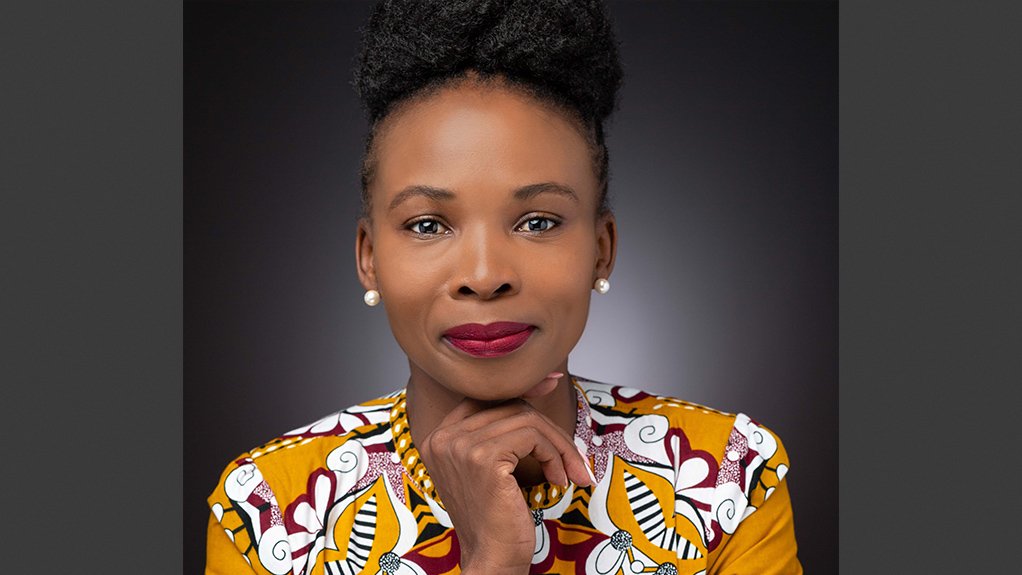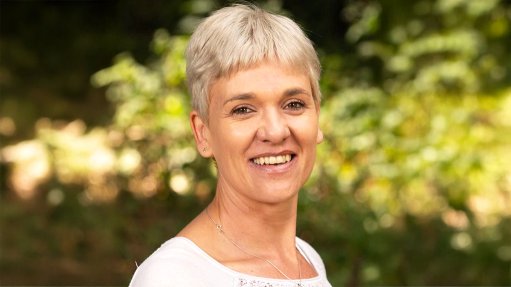Association warns of imminent collapse of Transnet
The African Rail Industry Association (ARIA) says State-owned freight utility Transnet’s reluctance to implement structural reforms is costing the economy and South Africa’s international reputation dearly, especially if it continues to disguise its true financial state.
ARIA CEO Mesela Nhlapo told journalists during a media briefing held on November 15 that Transnet had no intention to reform unless the law compels it to and that it is trying to “trade itself out of a massive disaster”.
She claimed that Transnet had asked its customers before the release of its interim results for the six months ended September 30 to pay the freight utility 30 days early, while itself postponing payments to suppliers, so that its cash position would look better.
Nhlapo also deemed it suspicious that Transnet swung to a R5-billion profit in the 2021/22 financial year from an R8-billion loss in the previous financial year, owing to property and asset re-evaluations of about R11-billion, and yet has a R27-billion underspending record on its property and asset maintenance for the last decade.
This while Transnet’s volumes have dropped by 24% in the last five years. In the entity’s General Freight division, the average monthly gross tonnes/km/locomotive key performance indicator shows a 33% drop in efficiency over five years.
She questioned how Transnet determined the value of its investment portfolio and re-evaluation of properties and assets, noting that the entity may have overstated these values.
Despite the estimated R1-billion a day of losses in export and import activity experienced during an 11-day-long strike at Transnet’s ports and rail operations early in October, Nhlapo estimated that Transnet costs the economy millions of rands on a daily basis.
For example, the Minerals Council South Africa estimates daily revenue losses of R815-million, with the iron-ore, coal, chrome and manganese industries being especially impacted.
Nhlapo said that, if the entity was honest about its financial state, a solution could be devised, but instead they were using loopholes and creating illusions to convince stakeholders that it was not a sinking ship in the making.
“Transnet’s slow but imminent collapse will have a massive impact on the South African economy. If there is an inefficient network industry, it directly undermines upstream growth,” she pointed out.
While ARIA projected that R70-billion to R100-billion of private sector investment was needed to “catch up” on infrastructure upgrades and maintenance backlogs, Nhlapo said Transnet’s approach to third-party access to the rail network was not only delayed but inherently flawed.
“Nobody in their right mind will invest in infrastructure or locomotives when only two-year contracts are on offer and on a ‘voetstoots’ basis, meaning at the buyer’s risk and without guarantee or warranty,” Nhlapo said, referring to Transnet’s third-party access requirements, which compel applying companies to accept all of the terms lest they are not qualified to apply.
She added that there would be no private sector investment in either the rail or upstream economy if there was no property third-party access, as it offers no long-term prospects for potential investors.
Nhlapo said government and other stakeholders were in denial about what was taking place at Transnet, anticipating that it is “another Zondo Commission” waiting to happen.
ARIA has made various proposals to improve Transnet’s operational and financial state, including speedy implementation of third-party access as envisioned by the National Rail Policy, concessioning out the core network to the private sector and concessioning out the branch lines.
START WITH SOFTWARE
South African Association of Freight Forwarders (SAAFF) CEO Dr Juanita Maree, meanwhile, said Transnet was protecting itself tothe detriment of the economy and that the lack in the sea and road modalities that Transnet manages, impacted on all other modalities that formed part of the supply chain as well – roads, pipelines and air freight.
She mentioned that cost, time and service reliability were nonnegotiable for investors, adding that when rail and port networks were not operating optimally, the economy suffered grave damage to reputation and growth prospects.
A particular issue for the SAAFF was the lack of a logistics indicator and therefore a lack of a clear baseline to know the deterioration of South Africa’s logistics system. “This means Transnet may well be in a worse position than Eskom,” Maree stated.
To this end, she suggested that Transnet develop an insight capability, such as a logistics monitoring tool, with understanding of the linkages in all modalities and between all role-players, using Big Data and Internet of Things to measure its performance.
The SAAFF said Transnet could “stitch” its supply chain together with dashboards for the ports of Richards Bay, Durban, East London, Coega, Gqeberha, Cape Town and Saldanha Bay, as a starting point to a compliant, safe and secure trading environment.
Commenting on the strike that happened at Transnet a few weeks ago, Maree said South Africa lost the opportunity to move R65-billion worth of goods, while the wage bill was now poised to grow even more, despite Transnet spending 65% of its operational expenditure on wages already.
She said there was a need for strengthened partnerships between government and strategic stakeholders through early consultation to enable prevention rather than cure.
Maree estimated that a complete restoration of normal functionality in the rail and port networks would only happen early in 2023, as the consequences of one day’s worth of stoppage have been shown to result in ten days needed for recovery.
“We need backup port facilities to evacuate the ports. We have a high freight demand, therefore, only a multi-modal approach – with all parties operating efficiently – will have a chance of satisfying our demand.”
This means South Africa needs a robust, functional rail sector, especially when moving goods from the country’s ports.
The country also needed precise policy alignment to allow for the practical execution of moving goods.
“The functioning of the supply chain, nor the economic extent of policies and actions that affect it, is clearly not fully understood by decision-makers,” said Maree, concluding that no one party should allow for ideology and self-interest to drive the actions of respective parties to the detriment of South Africa’s economy.
Article Enquiry
Email Article
Save Article
Feedback
To advertise email advertising@creamermedia.co.za or click here
Comments
Announcements
What's On
Subscribe to improve your user experience...
Option 1 (equivalent of R125 a month):
Receive a weekly copy of Creamer Media's Engineering News & Mining Weekly magazine
(print copy for those in South Africa and e-magazine for those outside of South Africa)
Receive daily email newsletters
Access to full search results
Access archive of magazine back copies
Access to Projects in Progress
Access to ONE Research Report of your choice in PDF format
Option 2 (equivalent of R375 a month):
All benefits from Option 1
PLUS
Access to Creamer Media's Research Channel Africa for ALL Research Reports, in PDF format, on various industrial and mining sectors
including Electricity; Water; Energy Transition; Hydrogen; Roads, Rail and Ports; Coal; Gold; Platinum; Battery Metals; etc.
Already a subscriber?
Forgotten your password?
Receive weekly copy of Creamer Media's Engineering News & Mining Weekly magazine (print copy for those in South Africa and e-magazine for those outside of South Africa)
➕
Recieve daily email newsletters
➕
Access to full search results
➕
Access archive of magazine back copies
➕
Access to Projects in Progress
➕
Access to ONE Research Report of your choice in PDF format
RESEARCH CHANNEL AFRICA
R4500 (equivalent of R375 a month)
SUBSCRIBEAll benefits from Option 1
➕
Access to Creamer Media's Research Channel Africa for ALL Research Reports on various industrial and mining sectors, in PDF format, including on:
Electricity
➕
Water
➕
Energy Transition
➕
Hydrogen
➕
Roads, Rail and Ports
➕
Coal
➕
Gold
➕
Platinum
➕
Battery Metals
➕
etc.
Receive all benefits from Option 1 or Option 2 delivered to numerous people at your company
➕
Multiple User names and Passwords for simultaneous log-ins
➕
Intranet integration access to all in your organisation




















